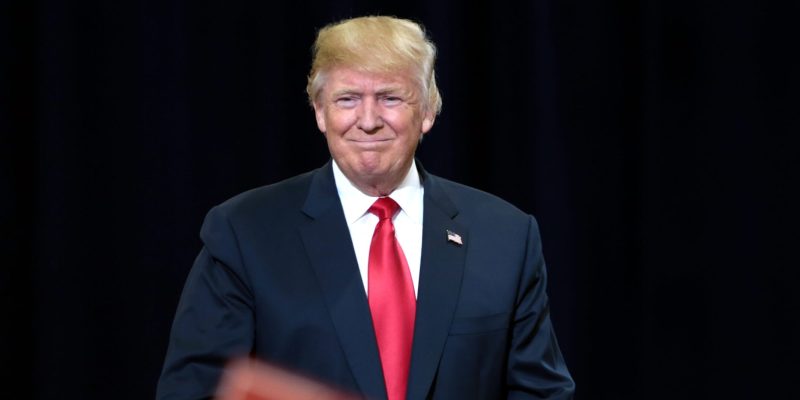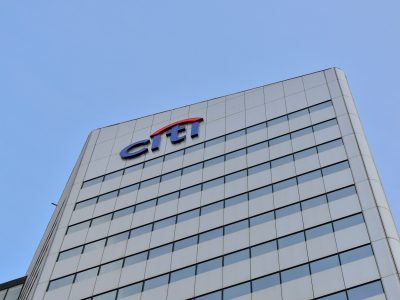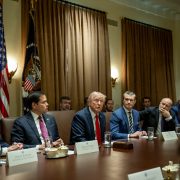
Donald Trump has redefined the Republican Party, embracing a populist platform centered on the working-class while maintaining skepticism of corporate power.
However, his second-term Cabinet appointments appear to challenge that narrative, as the president-elect surrounds himself with a group of wealthy business executives and investors.
These appointments, which include billionaires and Wall Street veterans with complex financial ties, have raised concerns about potential conflicts of interest spanning multiple industries, from defense and healthcare to cryptocurrency, according to a report by Politico.
Wealth and influence: Trump’s high-profile picks
Among the most notable figures joining Trump’s new administration are Howard Lutnick, CEO of Cantor Fitzgerald, as Commerce Secretary; Warren Stephens, CEO of an Arkansas financial services firm, as Ambassador to the UK; and Jared Isaacman, a billionaire entrepreneur and presumptive NASA Administrator.
Also on the list is Steve Feinberg, a private equity titan, as Deputy Defense Secretary.
Delaney Marsco, director of ethics at the Campaign Legal Center, highlighted the risks associated with these choices in the report:
It opens up the door for there being a lot more possible conflicts of interest because their personal wealth is so vast.
These appointments are emblematic of Trump’s unique blend of populism and deference to economic elites.
Despite his criticism of corporate power, Trump has consistently relied on business leaders to fill key roles, arguing that their experience can help drive his administration’s agenda.
To be sure, Trump is widely anticipated to advance policies spanning trade, labor, and antitrust that reflect the populist platform of his campaign.
Notably, some choices, such as Lori Chavez-DeRemer, the presumptive nominee for Labor Secretary and a figure viewed as union-friendly, signal a departure from traditional pre-Trump Republican priorities.
Ethical challenges and criticism
The potential conflicts of interest in Trump’s administration have become an early target for Democrats and ethics watchdogs.
Dr. Mehmet Oz, the president’s pick to lead Medicare and Medicaid, faces intense scrutiny for his financial ties to private health insurers and prior advocacy for Medicare privatization.
In a letter to Oz on Tuesday, Democratic lawmakers demanded assurances that he would divest his holdings in the insurance industry if confirmed.
Meanwhile, Trump’s Treasury Secretary pick, hedge fund executive Scott Bessent, has drawn criticism from Sen. Elizabeth Warren (D-Mass.) for his financial background, which she argues aligns more with enriching the wealthy than aiding working families.
Howard Lutnick, tapped for Commerce Secretary, has pledged to step down from his companies and divest his holdings upon Senate confirmation.
Through his firm Cantor Fitzgerald, he maintains close ties to Tether, a controversial foreign cryptocurrency company.
This connection could draw scrutiny, particularly in light of Trump’s commitment to revamping cryptocurrency regulations during his second term.
Elon Musk’s unconventional role
Elon Musk, the world’s richest man, presents a particularly unusual case in Trump’s administration.
Appointed to head the Department of Government Efficiency (DOGE), Musk’s position exists outside federal oversight, exempting him from standard conflict-of-interest laws.
Critics argue that Musk’s proximity to Trump could allow him to influence policies and regulations that benefit his business empire, which includes Tesla, SpaceX, and Starlink.
By deploying his wealth to serve as the president’s enforcer, Musk may be able to shape policies while remaining largely unchecked.
Balancing populism with elite influence
Despite these concerns, conflict-of-interest issues have not dominated the political discourse, reflecting a shift in public expectations under Trump’s leadership.
Sen. Mike Rounds (R-S.D.) defended the appointments, stating,
The founding fathers wanted folks coming from the business communities to be a part of this process, and that’s healthy.
However, the potential for clashes looms as some GOP moderates weigh the risks of backing nominees ahead of their own reelection bids in 2026.
Trump’s Cabinet selections underscore the balancing act between his populist messaging and the realities of governance.
Morgan Ackley, a spokeswoman for Trump’s transition team, defended the picks as necessary for achieving the administration’s ambitious goals.
“These highly qualified men and women have the talent, experience, and necessary skill sets to Make America Great Again,” Ackley said.
The post How Trump’s billionaire Cabinet sparks conflict-of-interest concerns appeared first on Invezz









